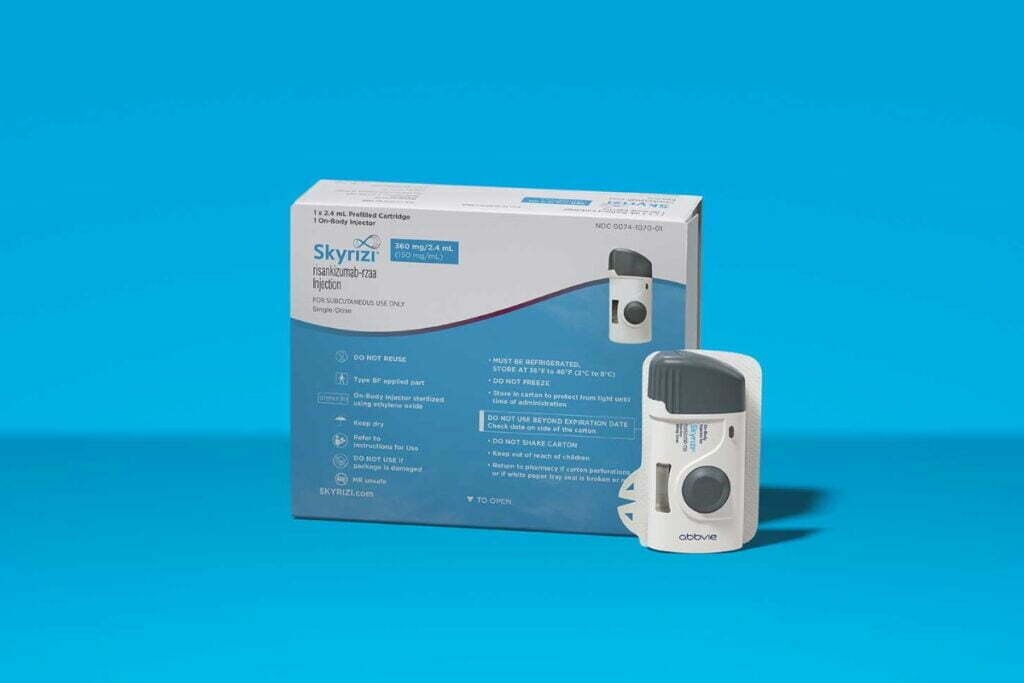Source – Abbvie
On 16 June 2023, Risankizumab (SKYRIZI, 180 mg or 360 mg subcutaneous [SC]) achieved the primary endpoint of clinical remission (per Adapted Mayo Score) at week 52, as well as important secondary endpoints in adult patients with moderately to severely active ulcerative colitis, according to positive top-line results from AbbVie’s Phase III maintenance study, COMMAND, released today. Patients from the Phase 2b/3 INSPIRE project who responded to the induction therapy were re-randomized to receive either Risankizumab 180 mg SC, 360 mg SC, or discontinue the medication (Risankizumab intravenous [IV] induction-only control group) in the COMMAND maintenance phase. About 75% of patients with ulcerative colitis had previously failed at least one advanced treatment (biologics, JAK inhibitors, and/or S1P receptor modulators).
Clinical remission was attained by considerably more patients who received Risankizumab 180 mg or 360 mg at week 52: 40% and 38%, respectively, as opposed to 25% in the induction-only control group.
“Through important programs such as the Phase III COMMAND study, we continue to drive research and development to help manage the impact of serious gastroenterological conditions. Risankizumab is already approved in moderately to severely active Crohn’s disease, and these results demonstrate that this treatment can be a potentially effective option for ulcerative colitis as well.”
– Roopal Thakkar, M.D., senior vice president, development, regulatory affairs and chief medical officer, AbbVie
In the command study, endoscopic improvement was seen in 51% of patients who received Risankizumab 180 mg and 48% of patients who received Risankizumab 360 mg at week 52, compared to 32% of patients in the induction-only control group (p 0.001). Furthermore, considerably more patients who received Risankizumab 180 mg and 360 mg at week 52 than those who received induction-only treatment did so: 43% and 42%, respectively, vs 23%. At week 52, a considerably larger percentage of patients who took Risankizumab 180 mg or 360 mg than the induction-only control group (40% and 37%, respectively, versus 25%) achieved steroid-free clinical remission.
“These positive results suggest that Risankizumab is a promising therapy to help ulcerative colitis patients with challenging symptoms that disrupt their daily lives. Risankizumab’s achievement of a broad range of difficult-to-reach endpoints encompassing endoscopic-histologic outcomes and many others represents important progress toward addressing the need for additional treatment options for patients with ulcerative colitis.”
– Stefan Schreiber, M.D., director of department of internal medicine I, University Hospital Schleswig-Holstein, Germany, COMMAND study investigator





























